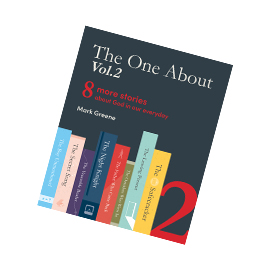Research: 5 Ways to get Disciplemaking into your Church’s DNA
Max is a personal banking manager. It was quarterly review time, and as he sat opposite his line manager, she remarked, ‘You seem calmer, Max; less irritable....
Read

—
The church is made up of a vast range of people from different cultures, ethnicities, and backgrounds, but we have one significant thing in common: we have each been called to the place where we are, amongst the people we’re called to serve, ‘for such a time as this’ – even if that time is a devastating pandemic.
In Esther 4:14, Mordecai sends a message to Esther: “For if you remain silent at this time, relief and deliverance for the Jews will arise from another place, but you and your father’s family will perish. And who knows but that you have come to royal position for such a time as this”. These powerful words remind us not only that God’s mission will be done no matter what we’re facing – but also that we’re each right where he wants us to play our part. We can either seize the moment or sit back and wait for relief to come from another place.
Church in the time of coronavirus
Last December, we heard of the pandemic for the first time. It sounded frightening yet distant, an issue that needed lots of prayer, but not one that was about to throw our lives upside down. Now, only months later, we know the life-changing impact of Covid-19 all too well. Every aspect of our culture and society has changed in some way, and we’re all much more concerned about the most vulnerable in our communities.
As church leaders, this crisis means we’re being forced to adapt fast. Although having change enforced on us is often difficult, in some ways it might also be a gift. A wise change guru once taught me that if we want to see transformational change in the world, then we need a crisis – and if there isn’t a crisis, we need to create one. Well we certainly don’t need to create one in 2020 – they’re with us in abundance! And that means as well as counting the cost, we need to have our eyes open to the opportunities for change.
Esther, too, was confronted with a significant crisis: Haman’s threat to destroy her people. She had a choice – she could sit pretty in her royal position or she could step forward and be counted. Each of us has that same choice. Will we step out into all that God has for us – and as church leaders, will we help our congregations to do the same, right where God’s placed them during the pandemic?
What’s in your hand?
Joining in God’s work doesn’t have to mean a huge overhaul of our lives. Most of the time, God simply asks us – ‘what’s in your hand?’ What do we have that we can use to serve him right where we are?
For people in our congregations, that might be the chance to stand up for fair treatment of suppliers at work as the economy gets squeezed. Or the opportunity to continue shopping for older neighbours, even after local action campaigns slip from the headlines. Or simply the time every week to call up a family member who’s feeling lonely or isolated.
When people think about living out God’s calling, they often look for new gifts or ministries – when, actually, he’s already given them all they need to join his work right where they are. They may not realise how precious the skills and talents they already possess are. But what they see as ordinary things can become extraordinary when they’re given over to God.
Our baptism into the priesthood of all believers means that each and every member of the church is called to play their part in ministering in the whole world. Everyone in your congregation can serve God in these unprecedented times, even if they’re shielding, even if they can’t leave the house. Each of them has something ‘in their hand’ that they can use fruitfully for him. Wherever God’s put them, the question is not ‘can I make a difference here?’ It’s ‘how has God equipped me to make a difference?’
Gathered times for scattered lives
If that’s true, then now more than ever we have a real opportunity to use our ‘gathered’ times to help people see how they can serve God in their scattered lives – just by using what’s in their hand. Our new reality calls for us to imagine new possibilities in how we live out our faith in a world that may look and feel rather different. Whilst this is a time for our churches to care for people, especially the most vulnerable, it’s also a time to equip and strengthen our congregations, not just to survive but to thrive as Christ’s disciples.
So, how might we as church leaders help people reach deeper and bring Christ’s wisdom, hope, grace, and truth to the things our congregations do every day, to the people they’re usually with, and to places they spend time? How can we grow a collaborative culture in our churches where we equip and encourage each other, both lay and ordained, to serve Christ in our everyday lives?
It can be as simple as looking for a few one-degree shifts in the way we do things, to help develop a culture that’s focused on equipping people for their Monday-to-Saturday lives. We might dedicate some time in each service to hear from a member of the congregation about where they’ll be ‘this time tomorrow’, and how we can pray for their ministry there. We might develop the habit of using language that affirms the significance of people’s everyday frontlines. And when people express feeling lost or purposeless during the pandemic, we might encourage them to ask God that simple question: ‘what’s in my hand that you want me to use?’
Just imagine your church full of people actively engaged in missional living in the places they live, work, study or play, sharing the good news of Jesus in every aspect of life, every day of the week! Whatever it looks like in your church, you can play your part in inspiring people to see what God’s put in their hands and how they can make a difference for him where they are, even in the midst of a pandemic.
Who knows? Maybe you, like Esther, have come to your position for such a time as this…
—
Lyn Weston
Director of Church of England Relations, LICC

Author
Lyn Weston